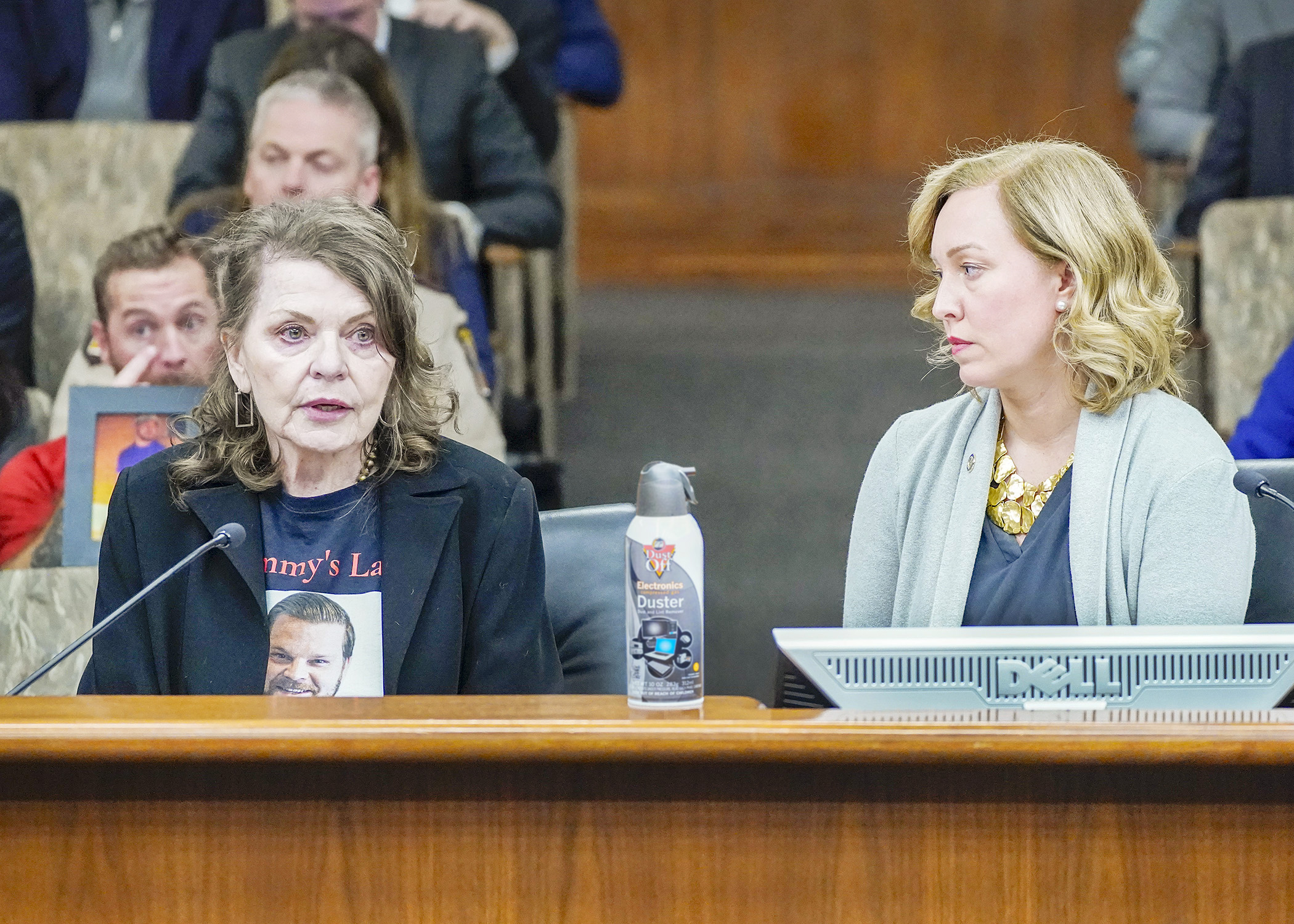House commerce panel advances bill to limit aerosols used in ‘huffing’

Sitting at the testifier’s table, Katie O’Meara wore a shirt that showed her son smiling.
It’s how she’d like to remember him.
“I can’t save Tommy now, but I can help save other people’s children,” O’Meara said in a wavering voice. “We must pass this law.”
Tommy Byers died from huffing aerosol dusters — products in spray cans used to clean computers and other electronic products — that contain 1,1 difluoroethane, which when ingested produces an intense, highly addictive high.
“In a span of three weeks, Tommy’s free will was gone,” she said. “The psychoactive properties had taken over.”
Rep. Heather Edelson (DFL-Edina) sponsors HF3539, which would regulate the sale of aerosol dusters.
“What appears to be a harmless product has in recent years become the cause of many deaths, harm, and addiction to Minnesotans,” Edelson said.
The House Commerce Finance and Policy Committee approved HF3539 Monday via a voice vote and sent it to the House Public Safety Finance and Policy Committee.
“No one deserves to die like this. No parent deserves to lose a beloved child to a cheap hardware store can of poison,” O’Meara said.
Provisions in the bill would require retailers selling aerosol dusters containing difluoroethane to:
- keep them behind the counter;
- limit sales to purchasers who prove they are at least 21 years old; and
- sell no more than three cans in a single transaction.
Violating these regulations would be a misdemeanor.
Air dusters are widely available at low-cost and usually not considered a poison or dangerous by the public, making huffing this chemical deceptively deadly, said Samantha Lee, director of the Minnesota Poison Control System.
“The chemicals within the air dusters can take the place of oxygen in the blood and the brain,” she said. “The biggest concern is that it can cause sudden sniffing death syndrome and produce irregular heart rhythms that may lead to cardiac arrest and death.”
The bill would also require new labeling for aerosol dusters sold in Minnesota. Warning labels would be “placed within a red rectangle encompassing at least one-half of the area of the rear side of the can.”
Wording in the red box would include:
- DANGER: DEATH! Breathing this product to get high can kill you;
- Danger: Can stop your heart;
- Caution: Can cut off air to your brain; and
- Warning: Can result in death.
Rep. Anne Neu Brindley (R-North Branch) audibly voted against the bill.
She had earlier voiced concerns, including that limiting the sale to three cans at a time could be problematic “for a small, mom-and-pop computer repair shop” with legitimate needs to purchase higher quantities.
Related Articles
Search Session Daily
Advanced Search OptionsPriority Dailies
Speaker Emerita Melissa Hortman, husband killed in attack
By HPIS Staff House Speaker Emerita Melissa Hortman (DFL-Brooklyn Park) and her husband, Mark, were fatally shot in their home early Saturday morning.
Gov. Tim Walz announced the news dur...
House Speaker Emerita Melissa Hortman (DFL-Brooklyn Park) and her husband, Mark, were fatally shot in their home early Saturday morning.
Gov. Tim Walz announced the news dur...
Lawmakers deliver budget bills to governor's desk in one-day special session
By Mike Cook About that talk of needing all 21 hours left in a legislative day to complete a special session?
House members were more than up to the challenge Monday. Beginning at 10 a.m...
About that talk of needing all 21 hours left in a legislative day to complete a special session?
House members were more than up to the challenge Monday. Beginning at 10 a.m...